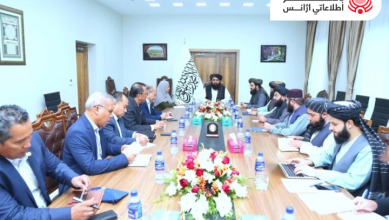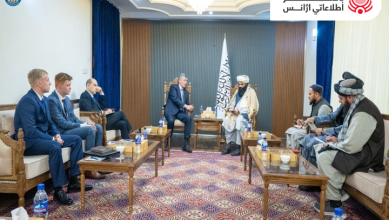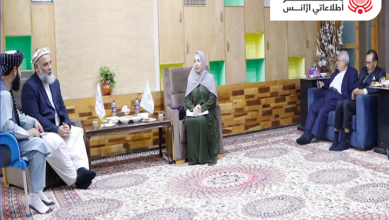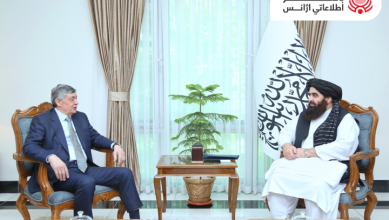
Kabul (BNA) The period following the start of Afghanistan Peace Negotiations in September 2020 has witnessed a sharp and chilling number of killings of human rights defenders and media professionals in Afghanistan, a UN report said yesterday.
A new report issued yesterday by the UN Assistance Mission in Afghanistan (UNAMA) analyzed data and trends connected to the killings from 1 January 2018 to 31 January 2021. It traces the changing patterns of attacks on these key sectors of civil society and provides recommendations.
No fewer than 11 human rights defenders and media workers were killed in targeted attacks in Afghanistan from the 12 September 2020 start of peace negotiations through to 31 January 2021. This trend, combined with the absence of claims of responsibility, has generated a climate of fear among the population, according to the report.
Human rights and media space has contracted as a result, with many professionals exercising self-censorship in their work, quitting their jobs, and leaving their homes and communities with hopes it will improve their safety, the statement added, saying that many, including high profile personalities, have fled the country. “The killings have had the broader impact across society of also diminishing expectations around efforts towards peace.”
“The Afghan people need and deserve a flourishing civic space – a society where people can think, write and voice their views openly, without fear,” the statement quoted Deborah Lyons, the Secretary-General’s Special Representative for Afghanistan as saying.
“The voices of human rights defenders and the media are critical for any open and decent society. At a time when dialogue and an end to the conflict through talks and political settlement should be the focus, the voices from human rights and the media need to be heard more than ever before, instead they are being silenced,” said the envoy, who is also head of UNAMA.
The statement further said that attacks against representatives of the human rights and media sectors in Afghanistan are not a new development, but, as the report documents, there has been a distinct change in the type of killings. The most recent wave, that of intentional, premeditated and deliberate targeting of individuals with perpetrators remaining anonymous contrasts to previous years. Then, such deaths were mainly caused by the proximity of individuals to attacks by organized armed groups, mainly the Islamic State in the Levant-Khorasan-Province (ISIL-KP), involving the use of improvised explosive devices.
The report records a total of 65 human rights defenders and media professionals killed in the period from 1 January 2018 – 31 January 2021, 32 from the human rights sector and 33 from the media. Of these, 11 (five human rights defenders and six media) were killed in the four-month period from 1 October 2020 – 31 January 2021 alone.
The report notes that as they work to provide timely information to the population of Afghanistan on a range of issues (including violations of international humanitarian law and human rights law), human rights defenders, journalists and media workers are far too often exposed to threats, intimidation, harassment, surveillance or arbitrary detention.
The report underlines that all actors have an important role to play in preventing such killings and intimidation, promoting accountability and preventing impunity. Investigations into killings must be independent, impartial, prompt, thorough, effective, credible and transparent. “The prosecution of suspected perpetrators should strictly follow due process and fair trial standards. The use of charged rhetoric against the role of civil society and the media, threats or actions taken against whistleblowers, and the circulation of “target lists” all contribute to perpetuating the conditions in which civic space can only shrink further and exacerbate the unsettling effect on the population, especially human rights defenders and media professionals.”
The UNAMA report made a series of recommendations to both state and non-state actors in the report that is: Operationalize an effective and cooperative national protection mechanism, building on the recent establishment of the Joint Commission for the Protection of Human Rights Defenders under the leadership of the Second Vice President of Afghanistan.
Meanwhile, putting in place an adequate preventive framework, including special protective and proactive security measures for human rights defenders, journalists and media workers subject to threats or other types of intimidation.
The report also asks to ensure that human rights defenders, journalists and media workers enjoy their legitimate rights to life, freedom of association, freedom of expression and access to information, as well as other fundamental freedoms, without fear of reprisal or attack.
“Counter impunity, including by conducting independent, impartial, prompt, thorough, effective, credible and transparent investigations into killings,” UNAMA recommended. It has also asked for promoting genuine accountability, including by prosecuting suspected perpetrators of targeted attacks strictly following international due process and fair trial standards.
“Protect and promote civic space, including refraining from adopting restrictive laws on freedom of association and freedom of expression, as well as avoiding a public discourse where civic space is unnecessarily challenged or targeted,” the agency proposed, as concluded by the report.




